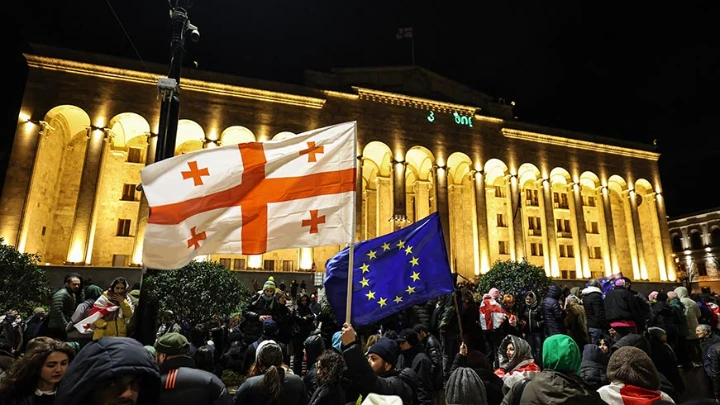Georgia has long been caught in a tug-of-war for influence between Russia and the West. In the recent parliamentary elections that were held in October 2024, the Georgian Dream party had a resounding victory. Yet, the streets of Tbilisi have since been engulfed by protests against alleged rigging in the elections. These tensions provoked the biggest demonstrations in Georgia’s political history, with potentially momentous consequences for the democratic consolidation of this South Caucasian republic. The first session of Georgia's new parliament, which convened this week on 25 November, was decried as illegitimate and boycotted by the Opposition.
Fair election or Russia’s special operation?
Both sides of the political aisle ratcheted up the electoral campaign rhetoric over Georgia’s foreign policy alignment and its prospective European Union (EU) accession.
The first session of Georgia's new parliament, which convened this week on 25 November, was decried as illegitimate and boycotted by the Opposition.
For the first time in its electoral history, Georgia introduced electronic voting and, through EU-facilitated reforms, adopted a fully proportional representation system, ensuring that mandates are allocated by each party's vote share. A total of 18 parties and coalitions contested the elections. The Georgian Dream party, which has held power since 2012, secured almost 54 percent of the vote, winning 89 out of 150 seats in the Georgian Parliament and was re-elected for a fourth term.
The Georgian Dream party maintained its strong foothold in the relatively rural areas of Samtskhe-Javakheti, Kvemo Kartli, and Adjara. Data from the Central Election Commission shows close races in other large cities, such as Kutaisi (Imereti), Poti (Samegrelo), and Batumi (Adjara), where the party finished below 50 percent but received more votes than the four pro-Western Opposition coalitions. In the Opposition-run Tsalenjikha (Samegrelo), the Dream Party finished with 48 percent, which is also more than the share of the four Opposition alliances combined. In Mingrelia, where Opposition parties, especially the United National Movement, were strongest in the 2021 local elections, the Georgian Dream party (GD) reversed the trend and won all districts. However, the party faced opposition in urban centres, losing the capital Tbilisi and Rustavi with 42.2 percent and 41.4 percent of the vote, respectively. The party also lost ground to the Opposition among the Georgian diaspora, despite the government’s effort to establish 67 polling stations in 42 countries to facilitate their participation. In addition, GD failed to attain an absolute majority in the Parliament that would allow it to make sweeping constitutional changes.




